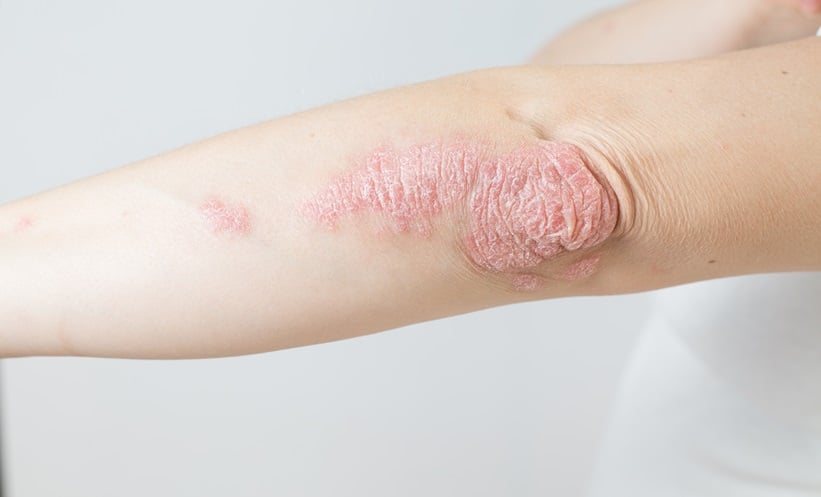RECENT research found that patients with cancer treated with immune checkpoint inhibitors (ICIs) face a twofold increased risk of developing psoriasis. ICIs are innovative cancer therapies that boost the immune response against tumours, making them highly effective in treating advanced cancers. However, these treatments are associated with immune-related adverse effects, including the development of autoimmune diseases such as psoriasis. Given the significant role of ICIs in cancer care, understanding their potential adverse effects is crucial for managing patient outcomes. This study aimed to evaluate the incidence of psoriasis in cancer patients receiving ICIs compared to those on other treatments.
Researchers conducted a nationwide cohort study using data from the Taiwan National Health Insurance database and the Taiwan Cancer Registry. The study included patients with stage III or IV cancer who received antineoplastic treatments between January 2019 and June 2021. Patients were divided into ICI users and non-ICI users, the latter group receiving chemotherapy or targeted therapies instead. The main outcome was the incidence of psoriasis during follow-up, adjusted using inverse probability of treatment weighting (IPTW) to control for demographic and clinical confounders.
Among 135,230 participants (mean age 62.94 years; 45.1% female), 3,188 were treated with ICIs. Results showed a higher incidence of psoriasis among ICI users, at 5.76 cases per 1000 person-years, compared to 1.44 cases in the non-ICI group. After adjustments, ICI users were found to have more than twice the risk of developing psoriasis (IPTW-adjusted hazard ratio [HR] of 3.31; sub distribution HR of 2.43), with consistent findings across different statistical analyses and follow-up intervals.
This study highlights the elevated risk of psoriasis in cancer patients undergoing ICI treatment, emphasising the need for healthcare providers to monitor for this adverse effect. Clinicians should discuss this risk with patients to support informed treatment decisions and to manage symptoms effectively if psoriasis develops. Future research should explore the mechanisms underlying this increased risk and potential preventive measures. Clinically, these findings highlight the importance of balancing the benefits of ICIs in cancer treatment with their potential immune-related adverse effects to provide optimal and holistic care.
Reference
To S-Y et al. Psoriasis risk with immune checkpoint inhibitors. JAMA Dermatol. 2024. DOI:10.1001/jamadermatol.2024.4129.







